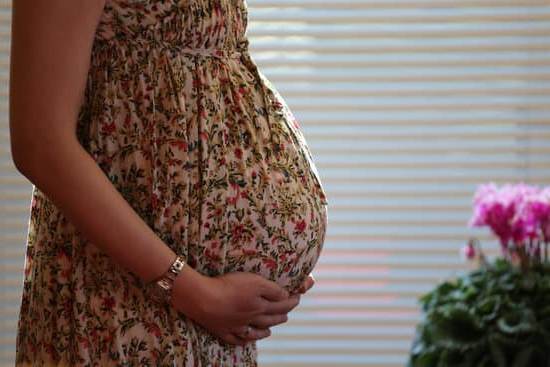Pregnancy is a beautiful journey that comes with a myriad of physical and emotional changes. One common question many women have is, “Is dry mouth a sign of pregnancy?” The answer to this query lies in understanding the early signs and symptoms that can indicate the beginning of this transformative phase.
During pregnancy, hormonal fluctuations can lead to a range of symptoms, including the often-overlooked dry mouth. This condition occurs due to decreased saliva production, which can result in discomfort and oral health issues. While not as well-known as morning sickness or fatigue, dry mouth is a legitimate indicator of pregnancy that deserves attention.
Research and statistics suggest that dry mouth is indeed a common symptom during pregnancy for many women. Understanding the physiological reasons behind dry mouth can provide insights into how it fits into the broader picture of early pregnancy signs. As we delve deeper into the topic, it becomes increasingly clear that managing dry mouth effectively is crucial for overall maternal well-being.
What Causes Dry Mouth
Dry mouth, also known as xerostomia, can be attributed to a variety of factors, including hormonal changes, medications, dehydration, stress, and more. However, when it comes to pregnancy, hormonal fluctuations are often the primary culprits behind this uncomfortable symptom.
During pregnancy, the body experiences an increase in progesterone levels, which can affect the salivary glands and decrease saliva production. This decrease in saliva can lead to dry mouth, making it one of the potential signs that a woman may be expecting.
Hormonal Changes and Saliva Production
The link between hormonal changes and dry mouth during pregnancy is significant. As progesterone levels rise, it can alter the function of the salivary glands. These glands are responsible for producing saliva, which plays a crucial role in maintaining oral health by washing away food particles and neutralizing acids produced by bacteria. When there is a decrease in saliva production due to hormonal shifts in pregnancy, it can result in dry mouth.
Impact on Oral Health
Dry mouth not only causes discomfort but can also have implications for oral health during pregnancy. Without an adequate amount of saliva to cleanse the mouth, there is an increased risk of developing dental issues such as cavities or gum disease. It is essential for pregnant individuals experiencing dry mouth to maintain good oral hygiene practices to reduce these risks. Additionally, visiting a dentist regularly during pregnancy can help address any concerns related to oral health and dry mouth.
In summary, hormonal changes play a significant role in causing dry mouth during pregnancy. Understanding the connection between these physiological changes and symptoms like xerostomia can help individuals differentiate between normal bodily reactions and potentially concerning signs. Managing dry mouth through hydration, proper oral hygiene practices, and seeking guidance from healthcare providers when needed can alleviate discomfort and promote overall well-being during this important time.
Is Dry Mouth a Common Symptom of Pregnancy
Dry mouth is a relatively common symptom experienced by pregnant individuals, yet its prevalence may vary among women. Research and statistics show that hormonal changes play a significant role in the development of dry mouth during pregnancy. These changes can lead to decreased saliva production, resulting in the sensation of dryness in the mouth.
To understand the prevalence of dry mouth during pregnancy, it is important to look at some statistics. Approximately 30% of pregnant women may experience dry mouth at some point during their pregnancy. This percentage can vary based on individual factors such as overall health, hydration levels, and genetic predisposition to dry mouth.
- Hormonal changes: Fluctuations in hormone levels, particularly an increase in progesterone, can affect salivary gland function and result in reduced saliva production.
- Dehydration: Pregnant individuals may experience increased thirst due to hormonal changes, leading to dehydration if adequate fluids are not consumed.
- Medications: Some medications commonly used during pregnancy may have side effects that contribute to dry mouth.
It is essential for pregnant individuals experiencing dry mouth to differentiate between this symptom and other potential causes. While hormonal changes are often responsible for dry mouth during pregnancy, it is crucial to rule out other factors such as poor dental health or medication side effects. Consulting with a healthcare provider can help determine the underlying cause and appropriate management strategies for alleviating dry mouth symptoms.
Other Early Signs of Pregnancy
During pregnancy, there are numerous early signs and symptoms that women may experience, with some being more commonly known than others. Apart from the classic symptoms like morning sickness and fatigue, dry mouth is also a potential indicator of pregnancy. While it may not be as widely discussed as other manifestations, dry mouth can still be a notable clue that a woman might be expecting.
Physiology of Dry Mouth in Pregnancy
Dry mouth, also known as xerostomia, occurs when there is a decrease in the production of saliva in the mouth. During pregnancy, hormonal changes can impact the salivary glands, leading to reduced saliva production. Additionally, an increase in metabolic rates and blood flow can contribute to dehydration, exacerbating the symptoms of dry mouth. This physiological explanation sheds light on why some pregnant women may experience this symptom.
Research on Dry Mouth as a Sign of Pregnancy
Despite not being as widely recognized as nausea or fatigue, dry mouth is indeed a common symptom during pregnancy. Research studies have shown that approximately 20-30% of pregnant women report experiencing dry mouth at some point during their pregnancy. This statistic highlights the significance of considering dry mouth as a potential early sign of gestation. Furthermore, understanding the prevalence of this symptom can aid healthcare providers in better diagnosing and managing pregnant individuals.
As such, it is crucial for expectant mothers to be aware of various signs and symptoms that they may encounter during this critical time. By recognizing lesser-known indicators like dry mouth alongside popular ones like nausea and fatigue, women can better understand their own bodies and seek appropriate medical attention when needed.
How to Differentiate Dry Mouth in Pregnancy From Other Causes
Dry mouth, also known as xerostomia, can indeed be a sign of pregnancy for some women. However, it is important to differentiate between dry mouth caused by hormonal changes during pregnancy and dry mouth caused by other factors such as poor dental health or certain medications. Hormonal changes during pregnancy can lead to decreased saliva production, resulting in dry mouth. This is because an increase in hormones like estrogen and progesterone can alter the composition of saliva.
On the other hand, dry mouth can also be caused by external factors not related to pregnancy. Poor oral hygiene practices, certain medications, dehydration, smoking, and medical conditions such as diabetes can all contribute to dry mouth. It is essential to consider these potential causes when experiencing dry mouth symptoms during pregnancy to ensure proper management and treatment.
To differentiate dry mouth in pregnancy from other causes, it is important to consult with a healthcare provider or dentist for a comprehensive evaluation. They can assess your overall oral health, review your medical history, and discuss any medication you may be taking.
By ruling out other potential causes of dry mouth, healthcare professionals can provide tailored recommendations for managing this symptom during pregnancy. Remember that maintaining good oral hygiene practices such as regular brushing, flossing, and staying hydrated are crucial steps in alleviating dry mouth symptoms regardless of the cause.
Tips for Managing Dry Mouth During Pregnancy
Experiencing dry mouth during pregnancy is a common occurrence for many expectant mothers. The hormonal changes that occur during pregnancy can lead to a reduction in saliva production, resulting in that uncomfortable dry sensation in the mouth. Additionally, the increased blood volume and metabolism during pregnancy can exacerbate dehydration, making it even more important to stay hydrated.
One of the key ways to manage dry mouth during pregnancy is to prioritize hydration. Drinking plenty of water throughout the day can help maintain saliva production and alleviate dryness in the mouth. Sucking on ice chips or sugar-free candies can also help stimulate saliva flow and provide some relief from the discomfort of dry mouth.
In addition to staying hydrated, maintaining good oral hygiene is essential when dealing with dry mouth during pregnancy. This includes brushing your teeth at least twice a day with fluoride toothpaste and flossing regularly.
Using alcohol-free mouthwash and avoiding sugary or acidic foods can also help protect your teeth and gums from potential damage caused by decreased saliva flow. Remember, keeping up with routine dental appointments is crucial during pregnancy to address any oral health issues that may arise due to dry mouth.
When to Consult a Healthcare Provider
Dry mouth is generally considered to be a common and relatively harmless symptom for many individuals, but is dry mouth a sign of pregnancy? While experiencing dry mouth alone may not necessarily indicate pregnancy, it can be a potential early sign along with other symptoms. If you are experiencing persistent dry mouth along with other indicators such as missed periods, nausea, or fatigue, it might be worth considering taking a pregnancy test or consulting with a healthcare provider.
When it comes to differentiating dry mouth in pregnancy from other causes, it is important to consider the overall context of your health. Hormonal changes during pregnancy can contribute to dry mouth, but there are also other factors to consider such as dehydration or medication side effects. Maintaining good dental hygiene and staying hydrated are important steps to manage dry mouth during pregnancy, but if the symptoms persist or worsen, it may be a good idea to seek professional advice.
In some cases, dry mouth during pregnancy can also be a sign of underlying health issues that require medical attention. If you experience severe dry mouth accompanied by symptoms like extreme thirst, difficulty swallowing, or changes in taste sensation, these could potentially indicate more serious health concerns. It is always better to err on the side of caution and consult with a healthcare provider if you have any doubts or concerns about your symptoms.
Real Stories From Moms
During pregnancy, many women experience a variety of symptoms that can vary in intensity and duration. One lesser-known symptom that some pregnant women may experience is dry mouth. While not as commonly discussed as nausea or fatigue, dry mouth can be a bothersome issue for expectant mothers.
To shed light on this topic, here are some real stories from moms who have experienced dry mouth during their pregnancies:
- Emily, a mother of two, recalls feeling parched constantly during both her pregnancies. She noted that no matter how much water she drank, her mouth still felt dry and sticky. Emily found relief by carrying a water bottle with her at all times and frequently sipping on water throughout the day.
- Jessica, a first-time mom, was surprised when she started experiencing dry mouth early in her pregnancy. She described feeling like she couldn’t produce enough saliva to keep her mouth moist, which made eating and talking uncomfortable. Jessica found that chewing sugar-free gum helped stimulate saliva production and alleviate her dry mouth symptoms.
- Sarah, a mother of three, shared that she didn’t realize dry mouth could be a sign of pregnancy until she mentioned it to her doctor during a routine check-up. Her doctor explained that hormonal changes during pregnancy can impact saliva production, leading to dry mouth. Sarah found relief by using a humidifier at night to keep the air moist while she slept.
These personal experiences highlight the fact that dry mouth is indeed a symptom that some pregnant women may experience. By sharing their stories, these moms hope to raise awareness about this lesser-known symptom and provide support to other expectant mothers who may be experiencing similar issues.
Conclusion
In conclusion, dry mouth can indeed be a sign of pregnancy for some women. While it may not be as commonly discussed as nausea or fatigue, it is still a valid symptom that should not be dismissed. The hormonal changes and increased blood flow during pregnancy can lead to decreased saliva production, resulting in that uncomfortable dry feeling in the mouth.
It is important for expecting mothers to pay attention to their oral health and overall hydration during pregnancy. Staying hydrated, practicing good oral hygiene, and using sugar-free gum or lozenges can help alleviate the discomfort of dry mouth. Consulting with a healthcare provider if the dry mouth persists or is accompanied by other concerning symptoms is also crucial for ensuring both maternal and fetal well-being.
Overall, every pregnancy is unique, and symptoms like dry mouth may vary from woman to woman. By staying informed, proactive, and in tune with their bodies, expectant mothers can better navigate the physical changes that come with pregnancy. Remember, if you are experiencing persistent dry mouth along with other potential signs of pregnancy, it may be worth discussing them with your healthcare provider for further guidance and support.
Frequently Asked Questions
Is Dry Mouth a Early Sign of Pregnancy?
Dry mouth can be a symptom of pregnancy, but it is not necessarily an early sign. Hormonal changes during pregnancy can lead to decreased saliva production, causing dryness in the mouth. However, dry mouth alone should not be considered a definitive indicator of pregnancy.
What Are the First Signs of Pregnancy in the Mouth?
Some of the first signs of pregnancy in the mouth include increased sensitivity or tenderness in the gums, bleeding gums, and changes in taste sensation. Hormonal fluctuations during pregnancy can affect oral health, leading to these symptoms that may be noticed early on.
Is Dryness Sign of Early Pregnancy?
Dryness can be a sign of early pregnancy due to hormonal changes that affect the body’s moisture levels. In addition to dry mouth, other symptoms like increased thirst and dehydration might also be experienced. It is important to consider all symptoms together when determining if dryness is related to early pregnancy.

Welcome to my fertility blog. This is a space where I will be sharing my experiences as I navigate through the world of fertility treatments, as well as provide information and resources about fertility and pregnancy.





